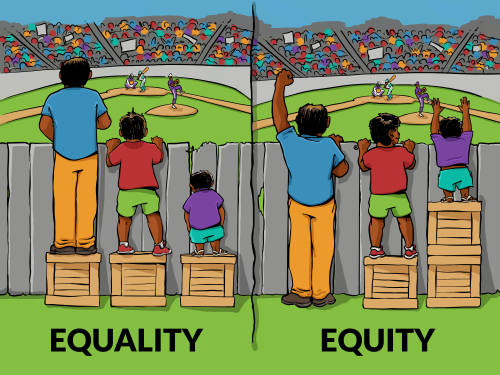It’s time for a critical analysis of the “equality vs equity” meme, a widely duplicated and mutated image of three people standing on crates to watch a baseball game.

I shrink images to fit this blog’s margins. For bigger versions, see my sources. Source
The linguistic island
Of all my complaints about this meme, my most significant is about its choice of words. On the surface level, the meme is educating us about the distinction between “equality” and “equity”. However, outside of the meme, that is not how the words are used. The equality/equity distinction, mostly just comes from the meme. The meme is not educating us about the meaning of these two words, it is establishing new meanings.
It is not illegitimate to create new meanings for words, of course. But the problem is that the meme masquerades as educational, and everyone takes that for granted. As a result, every discussion of “equity” eventually comes back to the meme. The meme is a linguistic island, and there is nowhere else for the discussion to go.

